Whānau wellbeing
-
Family violence
-
Mental health
-
Food insecurity
-
Alcohol
-
High-cost loans
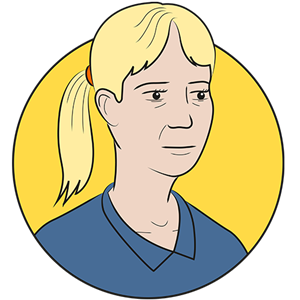 Jo recently left a violent relationship.
Jo recently left a violent relationship.
She’d tried a couple of times to leave already but he would always make promises, and she’d believe him. Jo would wear long sleeves under her checkout operator’s uniform so people couldn’t see the bruises. Jo took the domestic violence leave but was anxious that her workmates would find out.
Jo knew that her two children were aware of their Dad’s temper. She knew that they would get into the same bed at night, huddled together listening to their parents fight. She was glad that her kids were safe, living in a foster home until she could get enough money for a bond, but she wished they were all living together.
"The system is like a tangled web. I didn’t know how to find
support or what I am entitled to. You think you’re on the right track to get help but there’s always a bit of paper I don’t have, or information I don’t
know."
— Jo on accessing support
Family and Intimate Partner Violence
Family and intimate partner violence (IPV) is widespread: 35% of women who have ever been in a relationship report
having experienced physical and/or sexual violence in Aotearoa NZ. When emotional and psychological abuse is included, this
rises to more than 55%.
These statistics are estimates. Robust prevalence data is not regularly collected, and incidence data reflects only reported
episodes: around 87% of IPV is unreported. Although all humans are capable of violence and abuse, the overwhelming
majority (98%) of family violence deaths are perpetrated by men.
The trauma of colonisation is a driver of violence that reverberates intergenerationally, compounding inequities exacerbated by depression and addiction. While colonisation is intertwined into contemporary Māori experience, there are corollaries for Pākehā – the antecedents of unchecked privilege, entitlement and patriarchal structures which have their origins in the establishment of British law through colonisation. These patterns of sustained privilege perpetuate and reinforce inequities in housing, employment, education and justice.
Our systems must support survivors
Survivors and whānau continue to experience a complicated and convoluted system that can contribute to re-traumatisation. Having the proper support to assist victims with health, counselling and their options within the justice system is important to creating an environment where people feel safe and heard.
The court process has the potential to inflict mental harm on victims who access it. This harm is systemic violence effectively re-traumatising survivors of family and intimate partner violence. Māori report being excluded from the Family Court decision-making process, systems are difficult to navigate, extended whānau are excluded from speaking and Courts do not encompass Te Ao Māori perspectives or kaupapa Māori approaches.
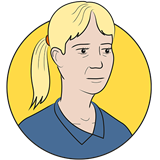 "I wanted to help my ex with his anger, because I honestly don’t think he would have been violent if he didn’t carry so much anger within himself, you know?
"I wanted to help my ex with his anger, because I honestly don’t think he would have been violent if he didn’t carry so much anger within himself, you know?
Lots of the programs seemed to be for people in the system. Like, something had to go wrong for people to take notice."
— Jo on her ex-partner's anger
Trauma-informed services
There is significant overlap between determinants of health, violence and justice, and the barriers experienced by perpetrators and survivors are similar — a culturally unsafe and racist system privileging western concepts of health, wellness and family, which does not centre Indigenous approaches to harm prevention.
Structural change using a trauma-informed approach can dismantle existing barriers which perpetuate violence and inequities for whānau. In Aotearoa NZ, trauma-informed services would recognise the intergenerational legacies of colonisation and structurally embedded privilege and the resulting impact on inequities and violence.
Family violence must be acknowledged as a public health issue. Violence is the end result of the same social, economic, cultural and political structures that influence inequity, and contributes to significant harm and health loss. Preventative actions must recognise the diverse experiences and impacts of trauma to begin to strengthen connected whānau and communities.
Future governments must respond to increasing gender inequity in paid and unpaid work resulting from the pandemic.
COVID-19 has revealed important gendered consequences in national lockdowns. As schools shut, and whānau spend more time at home, demands on unpaid labour increase. Simultaneously, many women are working on the front lines in healthcare, aged care and other essential workforces.
Of the people who lost their jobs in the April 2020 lockdown, a staggering 90% (10,000) were women, who dominate workforces in the hospitality, retail and tourism sectors. Many others had hours cut or pay withheld as their jobs were on a ‘casual, as needed’ basis.
Action on family violence
Our vision for Aotearoa in 2040: Hauora is the norm
- Children and whānau in Aotearoa NZ enjoy lives free of violence.
- People living in Aotearoa NZ enjoy positive mental health and wellbeing.
- People and whānau experiencing mental health conditions, addiction and/or distress have access to wraparound support.
RACP recommendations to make Whānau Wellbeing the norm
Whānau experiencing family violence have access to wraparound support to assist with health, counselling and accessing the justice system.
In any month, at least 460,000 people — just over 9% of the population — will experience symptoms of psychological distress like anxiety, depression and mental fatigue.
Since 2011-12, reported rates of psychological distress have increased. The burden of disease associated with anxiety disorders alone has increased by one third since 1990. In 2017, diagnosed mental health conditions contributed to 8.5% of health loss, behind cancers, cardiovascular diseases and musculoskeletal conditions.
Young people in Aotearoa NZ aged 12 to 24 report higher rates of psychological distress than other age groups. These rates have increased in the last two decades. Rangatahi Māori, Pasifika, Asian and LGBTQIA and genderqueer youth are more likely to experience depressive symptoms than Pākehā youth. Strengths-based interventions and barrier-free access to culturally safe primary care can support improved mental wellbeing outcomes for young people.
Mental health conditions, like other health conditions are strongly influenced by the social determinants and inequitable distribution of resources. People living in poverty experience more than twice the rate of psychological distress, compared to people in the least deprived areas. The incessant stress of hardship is toxic, contributing to depression and anxiety, addiction, self-harm and suicidal behaviour. For many people, this leads to a profound loss of dreams, aspirations and hope for the future.
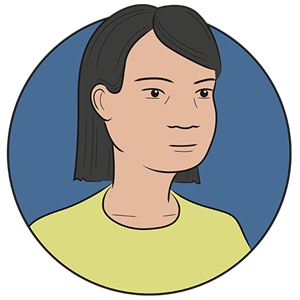 25 year-old Anna had experienced periods of anxiety and depression while at university and had been prescribed medication.
25 year-old Anna had experienced periods of anxiety and depression while at university and had been prescribed medication.
Anna was made redundant in June. She found her days unstructured and began to withdraw from activities even as the lockdown measures began to relax.
Anna found her mind occupied with thoughts of getting a new job, being able to pay her rent, buy food and pay down debts. She worried her plans for travelling would be delayed indefinitely. She felt anxious most of the time, had racing thoughts, feelings of hopelessness and trouble sleeping.
She was irritable and short with her flatmates, who were worried about her. She began to spend long stretches of time in her room, and spend less time with her flatmates, who were all among her close friends.
"My doctor prescribed me an antidepressant, and we agreed that counselling could be good for me too. There’s a long waitlist for subsidised counselling. I can’t afford to go privately, so I don’t know when I’ll get help."
— Anna on access to mental health services
Primary mental health and wellbeing initiatives announced in the 2019 Budget must be implemented as a priority. Increasing access to culturally safe mental health and wellbeing services for people for moderate needs is urgent.
People should not have to wait until they are at the point of hospitalisation or self-harm to access support.
Our system focuses almost entirely on people with the most severe needs: with services honed to focus on this population,
our system fails to support those with more moderate symptoms who could benefit from a range of interventions. The fact
that specialist services were free, while most primary care services including talk therapies incurred a charge, was labelled as
a 'perverse incentive' for people to remain in specialist services by He Ara Oranga, the report of the Panel on Mental Health
and Addiction.
Anxiety and distress are normal responses to times of uncertainty, such as the current pandemic. This underscores the acute need for greater access and availability of culturally safe mental health services, particularly those that draw from Te Ao Māori.
The pandemic will lead to a long tail of unmet need for younger people, who have faced extreme upheaval in education, work and employment and aspirations. For groups already at increased risk of psychological distress, including LGBTQIA and genderqueer young people, Māori, Pasifika and Asian youth, strengths-based approaches will support cultural identity and improved wellbeing.
Addiction
Addiction to alcohol and substances are health issues. The RACP strongly supports health and recovery approaches to understanding and treating substance use disorder.
Around 12% of New Zealanders will experience a substance use disorder at some point in their lifetimes, and of the people that seek support, more than half are seeking treatment for alcohol addiction. Although rates of substance use for opioids and amphetamine-type stimulants are low in absolute terms, methamphetamine, or 'P' continues to have a devastating impact on whānau and communities in Aotearoa NZ.
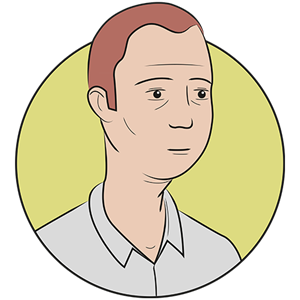 Mark is 47 and lives alone.
Mark is 47 and lives alone.
He’s used alcohol since his teen years and started using methamphetamine around 5 years ago. Mark’s relationship ended 2 years ago due to his alcohol and drug use, and his partner moved with their children to another town.
Mark’s substance use increased during this time. Drug rehabilitation and addiction treatment programs are limited in Mark’s town. He had a few sessions with a counsellor but periods of stress saw Mark relapse. He starts work at the rest home as a cleaner but continues to use methamphetamine regularly.
"Meth’s pretty easy to get around here. I’ve been using for a while now. I had counselling for a bit, that helped some. I know I need to kick it but I need support to do that."
— Mark on addiction
Around 1% of adults will use methamphetamine regularly, with males in the 25 to 34 years age group more likely to use at more than double the national average (2.4%). Methamphetamine is also accessible: 31% of regular
methamphetamine users — mostly outside of the main centres — were able to purchase the substance in less than 20 minutes.
The impact of methamphetamine in Aotearoa varies between region. Understanding the needs of the communities most affected is critical to reducing harm. All approaches to reducing methamphetamine use and addiction must be:
- health-first
- strengths-based approaches
- not punitive
- informed by kaupapa Māori practices
- involve whānau, hapū and iwi
They must be accessible and available in regions most affected by methamphetamine addiction.
Action on mental health
Our vision for Aotearoa in 2040: Hauora is the norm
- Children and whānau in Aotearoa NZ enjoy lives free of violence.
- People living in Aotearoa NZ enjoy positive mental health and wellbeing.
- People and whānau experiencing mental health conditions, addiction and/or distress have access to wraparound support.
RACP recommendations to make Whānau Wellbeing the norm
- Primary mental health and wellbeing initiatives must be implemented as a priority, especially in the wake of COVID-19
- Addiction to alcohol and other drugs is treated through the health system rather than the justice system.
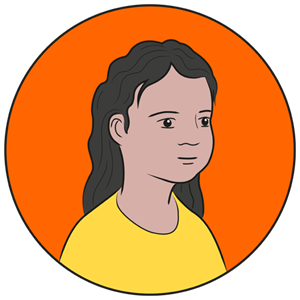 Nina is 4, and lives with 12 members her whānau.
Nina is 4, and lives with 12 members her whānau.
It’s crowded and money is tight. The adults are doing shift work and caring for unwell whānau members – food needs to be cheap, easy to prepare and feed a lot of people. Most importantly, food needs to be filling – pasta, hot chips, bread.
Nina’s mum and aunts will skip meals so that the children have more to eat. When Nina was born, her mum restricted her food intake so much her breast milk supply was affected.
Nina and her siblings all have a few decayed teeth. They share a worn toothbrush and there’s not always toothpaste. The tap water isn’t fluoridated in the city they live in, and the children have sugary drinks often, which are cheaper than milk.
Food insecurity is a reality for many whānau
Healthy and nutritious diets are resource intense. Healthy foods such as fruits, vegetables, meat and milk products are
expensive, and take time, knowledge and equipment to prepare. Whānau on low incomes are less likely to have access to these resources and this pushes them towards options which are quick, cheap, and unhealthy. Food insecurity — where whānau have unreliable access to healthy food — is linked to higher risk of tooth decay and childhood obesity and greater unmet need for health care, including unfilled prescriptions.
Advertising has a significant effect on food choices, particularly for children and adolescents. Advertisements for unhealthy foods and drinks are inescapable in Aotearoa NZ on television and digital media platforms, as well as in our communities: there are 3 times more fast food and convenience stores in the poorest neighbourhoods compared to the wealthiest.
A raft of local and international evidence supports change at the systems level to address the political, social and economic
determinants of poor nutrition and unhealthy diets. Aotearoa NZ is a land of plenty: ensuring all whānau have adequate
incomes to access nutritious foods which supports healthy child development must be an urgent priority.
Breakfast clubs and lunch programs are only effective when schools are open. During the COVID-19 lockdown, a child would have missed at least 10 meals a week if they relied on these initiatives regularly. Demand for food bank assistance and government emergency food grants surged during April and May 2020, showing that low household incomes and poor access to food lead to food insecurity.
Action on food insecurity
Our vision for Aotearoa in 2040: our environments support whānau wellbeing
All whānau enjoy accessible to nutritious food which supports health and wellbeing.
RACP recommendations to make whānau wellbeing the norm
- A life course approach to nutrition is emphasised, focusing on key points including parental diet, early
childhood and adolescence where diet is an important component of optimal development.
- The marketing and advertising of products contributing to unhealthy diets is centrally regulated.
Action on alcohol in Aotearoa NZ
Alcohol use was characterised at the Mental Health and Addiction Inquiry hearings as 'our national love affair'.
Alcohol was introduced to Aotearoa NZ through colonisation and was accompanied by the progressive loss of land, language and culture for tangata whenua. The intergenerational trauma of colonisation and compounding of inequities has contributed to tāne and wāhine Māori being over-represented in alcohol-related harm, including being more than twice as likely to die from an alcohol-related cause.
 Mark is 47, and lives in a small town.
Mark is 47, and lives in a small town.
Mark’s father struggled with alcohol addiction and mental health issues during his childhood. His father would spend most of his wages at the pub, leaving little money for rent, bills and food for the family. His dad had trouble holding down a job and had long stretches of unemployment. He became depressed and violent.
Mark started drinking in his early teens, following his Dad’s death from liver cancer. He has used alcohol as a way to cope with stress, numb the memories of his childhood and ‘zone out’ since this time.
"Drinking for me is a way to disconnect from my ex, from my childhood and from my Dad. It’s a way to stay out of the world for a while."
— Mark on why he drinks
Aotearoa NZ does not have a healthy relationship with alcohol. We have all the evidence and the recommendations. Aotearoa NZ must take action to reduce alcohol harm, and this must start by reforming our alcohol laws.
The Law Commission made extensive recommendations in 2010 to regulate how alcohol is marketed, where it can be sold
and lifting the purchasing age to 20. In 2014, the Ministerial Forum on Alcohol Advertising and Sponsorship called for alcohol
advertising to be banned for sports events, sports broadcasting, and music events where 10 per cent of the audience is under
18. In 2020, no action has been taken on either report’s recommendations.
We support system reform that sets how and where alcohol is purchased, promoted and accessed. We support improved
access to alcohol and drug addiction treatments. We need to shift resources to ensure that people can easily access help,
including at their local general practitioner. Evidence shows that even brief interventions in primary care can do a lot of good.
Increasing access to kaupapa Māori services is also essential. Most Māori access mainstream alcohol treatment services in
Aotearoa NZ and questions have been raised about the cultural safety of these services, and how successful they are in
providing treatment to whānau living with addiction. This must change if we are to reduce alcohol related harm.
The Level 4 COVID-19 lockdown saw 19% of New Zealanders have an alcoholic drink every day. At Level 1, this returned to pre-COVID levels for most people, with 11% reporting drinking every day. Importantly, the proportion of respondents reporting concern or harm from their own or someone else’s drinking remained unchanged at 1 in 8.
Health Promotion Agency, Post-lockdown Survey, 2020
Action on alcohol
Our vision for Aotearoa in 2040: our environments support whānau wellbeing
Aotearoa NZ has established a harm reduction framework for alcohol in society, including greater regulation of advertising, marketing, sponsorship and availability.
RACP recommendations to make whānau wellbeing the norm
- Recommendations of the Law Commission’s 2010 Review of alcohol legislation are revisited.
- Introduce minimum-unit pricing for alcohol.
- People can access support and resources to reduce alcohol use.
Action on high cost loans
Our vision for Aotearoa in 2040: our environments support whānau wellbeing
High-cost payday lenders are no longer operating in Aotearoa.
RACP recommendations to make whānau wellbeing the norm
- No advertising or marketing of payday and high-cost lenders on TV, radio, print or Internet.
- All Third Tier Lenders have an annualised interest rate for loans of no more than 20% in line with major
financial institutions, such as banks.
Strengthening regulation of Third Tier Lenders
Household income is a key determinant of health. Household income determines:
- the housing affordability
- access to
healthcare
- the types of food available to eat
Funds that are left over cover:
- utilities
- clothing
- footwear
- petrol and transport
- debt payments
Many people are working multiple low-paid jobs that don’t cover the cost of living for their whānau. If a big expense comes in, like car repairs or school uniforms, people often turn to Third Tier Lenders (including payday and high-cost loans) who offer them a way to access what they need but at a very steep price. Many whānau are often desperate, having few financial resources and poor credit histories making them vulnerable and at risk of exploitation.
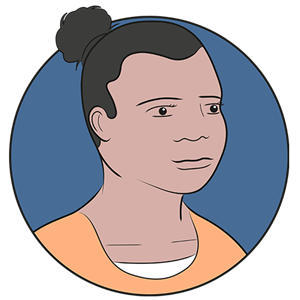 Maria is 21 and works part-time as a cleaner at a large hotel.
Maria is 21 and works part-time as a cleaner at a large hotel.
The hotel where Maria works applied for the wage subsidy, and although she was out of a job, she had enough to cover her immediate expenses, including her board. She could also continue to make payments on a loan she had taken out the previous year before she had moved to the city. Maria was working part time but her wages didn’t go far enough. Although the loan was small ($2000), the interest was high and it grew quickly.
"I needed money when I moved here. With all this COVID stuff happening, money is tight — I could only pay for some bills, so I chose to keep paying the loan back. I’m still worried about debt collectors, because I’ve missed some payments.
— Maria on her payday loan
While some action has been taken in this area, we believe the Credit Contracts Legislation Amendment Act did not go far enough, as it covered the 'on the extreme end' of non-banking financial lenders. There should be no advertising or marketing of Third Tier lenders on radio, print or the internet, as these companies use coercive techniques to target people at risk of financial harm.
Further, all Third Tier lenders should have an annualised interest rate for loans of no more than 20% —
this would bring all lenders more into line with retail banks, reducing inequity of access caused by poor credit history.
Strengthening regulation will protect vulnerable whānau from becoming trapped in debt spirals, which cause undue hardship,
deepen poverty and lead to ongoing mental distress.